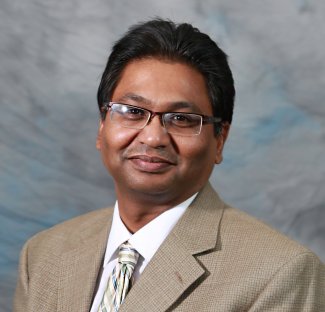
Noted University of Houston pharmacy researcher Rajender Aparasu, who began his academic career at South Dakota State University, is returning to Brookings to give the keynote address at the Keo Glidden Smith Fall Pharmacy Convocation.
Aparasu taught at SDSU from August 1995 to December 2005. His first trip back to campus will be for the Oct. 23 convocation.
He has been at the University of Houston since leaving SDSU, initially serving as the head of the Division of Pharmacy Administration and Public Health. Since 2014 he has been the founding chair of the Department of Pharmaceutical Health Outcomes and Policy, where he also is an endowed professor.
The health outcomes Aparasu is most interested in are those related to older adults.
His talk at the fall convocation is “Transforming Geriatric Care: The Power of Observational Research.” The convocation is 3 p.m. Monday, Oct. 23, in Founders Recital Hall in the Oscar Larson Performing Arts Center on the SDSU campus. Admission is free.
Among his research projects is one that compared the rate of death of nursing home residents who were prescribed first-generation (1950s) antipsychotics for mental health treatment versus those prescribed second-generation (1990s) antipsychotics, which include Risperdal.
The FDA issued a public health warning about second-generation antipsychotics in 2005 for increased risk of death among elderly patients with dementia and expanded that to first-generation antipsychotics in 2009.
Aparasu’s research team examined Medicare and Medicaid data from 50,000 elderly nursing home residents in Texas, Florida, New York and California who received the prescriptions for at least six months.
Aparasu’s findings showed the rate of all-cause mortality was greatest in those using first-generation antipsychotics (24% versus 18%) and the risk of mortality decreased after the initial 40 days.
He said using these large databases and strong statistical methods provides a reliable means to evaluate the safety and effectiveness of medications especially in vulnerable populations such as the elderly as limited evidence data exists from randomized trials .
Aparasu started his geriatric care research at SDSU when he collaborated with colleague Jane Mort and received his first federal grant from the Agency for Healthcare Research and Quality to evaluate inappropriate psychotropic medication use in older adults. Since then, he has worked on various areas of quality of pharmaceutical care in older adults and currently has federally funded research evaluating the benefits of deprescribing in older adults with multiple sclerosis.
“I am looking forward to the visit as I started my academic career at SDSU and have fond memories of my 10 years of academic life at SDSU,” he said.
The SDSU fall pharmacy convocation was named after Keo Glidden Smith in 1996. A 1937 graduate from the SDSU College of Pharmacy, she did pharmacy relief work until 1987. In 1989, she created an endowment fund to bring renowned research speakers to the campus.
This year’s convocation is being organized by college's Research and Scholarly Activity Committee and the Tau chapter of Rho Chi Honor Society. For more information, contact professor Wenfeng An.
- Contact:
- Telephone number: 605-688-4538
Republishing
You may republish SDSU News Center articles for free, online or in print. Questions? Contact us at sdsu.news@sdstate.edu or 605-688-6161.

